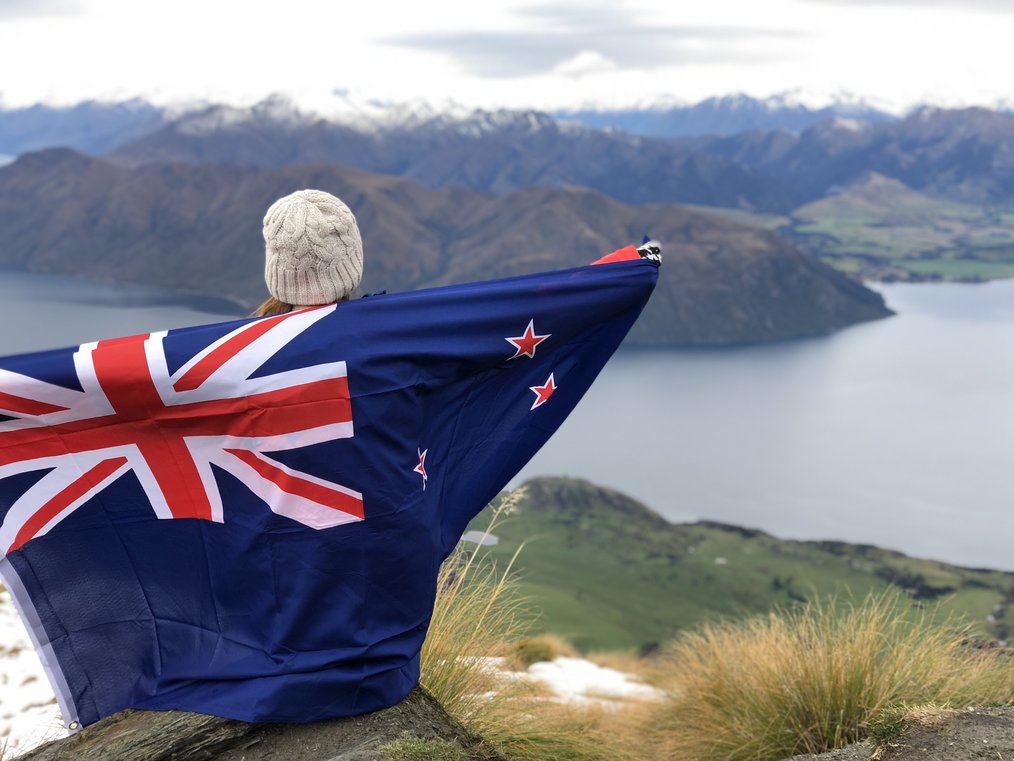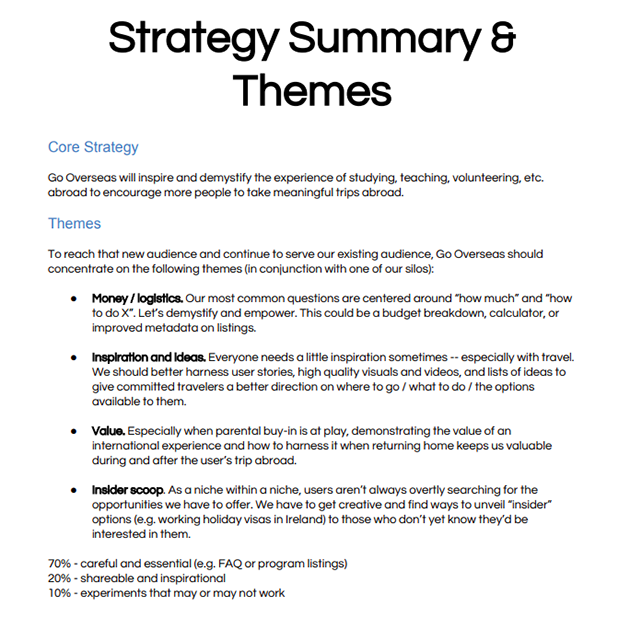Go Overseas | Content Strategy & Production
Develop Content Strategy and Improve Production Efficiency at Go Overseas
Established and scaled a content strategy and production process that enabled our team to grow our content marketing efforts, and 3x our overall website traffic.
PROJECT TYPE
Content Strategy, Freelancer Management, Web Production, CMS Onboarding
DATE
2014 - 2016
RESULT
Established a scalable content strategy and production process which enabled us to 3x overall website traffic.
BACKGROUND // CHALLENGE
Although Go Overseas had been investing in content marketing for several years, it lacked the strategy and process they needed to scale the program with limited resources. As the Content Marketing Director, I developed a strategy for all of our web content (listings pages, help content, and blog articles) and a scalable content creation process across 3,000+ unique webpages. I did this by focusing on four core areas:
Strategy
Consistency
Efficiency
Quality
Rather than produce content for the sake of producing content, our entire company needed goals and objectives for each of our content types, clarity on what part of the user journey they served, what audience they were reaching, and the overall business impact.
To accomplish this, I worked closely with our CEO, product team, and account managers to develop answers to each of these key questions, then create an operational plan to turn our strategy into action.
By outlining and establishing our content strategy, I created alignment on goals, objectives, and tactics across our different content types, which re-focused our efforts on the highest impact content investments.
01 // STRATEGY
Excerpts from strategy presentation
02 // CONSISTENCY
Initially, Go Overseas’ voice, messaging, and style varied from author to author, and content to content. To build a more consistent voice, tone, and style, I worked with our UX & brand designer to articulate our brand voice and messaging, then set clear guidelines for writers, designers, and photographers to follow when producing content.
This resulted in brand, messaging, and style consistency across all content (website, email, social, print), and establish ourselves as not just a website, but a recognizable brand.
03 // EFFICIENCY
With limited resources (people, budget, and time), reducing the amount of time our content production processes and improving efficiency took was a key step to scaling our content marketing efforts and expanding our website — which would, in turn, unlock our ability to bring on new clients and increase revenue. There were three key areas where we wanted to improve efficiency:
Communication: Instead of managing assignments for our freelancers in Google Sheets, we adopted a CMS that provided a centralized space to see what assignment each writer was responsible for, its status, and instant notifications when the article went live. It cut down communication between writers and the editorial team by 15%.
Production: Instead of hardcoding each article into HTML, I chose a CMS that automated it, reducing the amount of time it took to stage content from 2 hours to 30 minutes.
Planning: By having a centralized source of truth for all of our content, what was ready to publish, and what was scheduled, I reduced the amount of time it took me to create our content calendar each month.
Result: Created a centralized space to manage content production, which reduced the amount of time spent on communicating with writers, planning calendars, and staging content.
Initially, Go Overseas relied on junior writers to cut costs on content creation, which often meant writers covered topics outside of their areas of expertise, or produced low-quality pieces.
To solve this, I first increased our pay rate to attract quality subject matter experts to write for us. Then, I built out a diverse team of 15 geographically distributed writers, each of whom had subject matter expertise in one or more of our core themes (volunteering, studying, teaching, or taking gap years abroad) and/or a geographical area. For assignments where they lacked direct experience, I established a process to pair writers with experts to interview.
Finally, for photography, I worked closely with our community manager to source photos and get approval for re-use from our community reviews, which nearly eliminated our need for stock photos.
04 // QUALITY
Go Overseas “Listings” Page
Go Overseas Blog
As a result, I increased the quality and factualness of our content, which allowed us to go from producing 5 blog articles per week to 3, with no negative impact on website traffic. It also increased the amount of organic search traffic we got to our listings pages, thanks to more in-depth guides attached to them, which in turn increased advertiser spend and company revenue.






